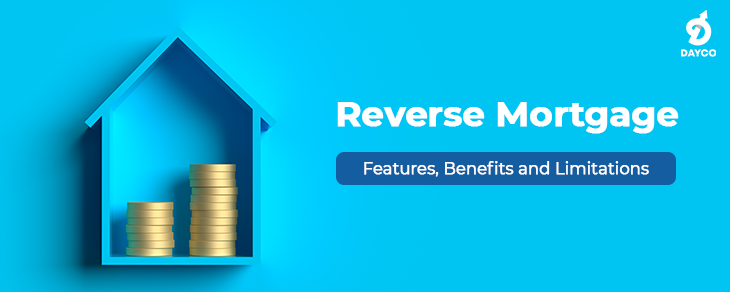Unlike a regular mortgage, a reverse mortgage is a scheme wherein you can use your house property as collateral to avail a loan. The bank values and inspects your property and finalises the total loan amount. In contrast to a regular mortgage wherein you make periodic payments to the bank for the mortgage availed, the bank makes periodic payments to you in a reverse mortgage. The Government launched this scheme in India in the year 2007.
How does a reverse mortgage scheme help you? Well, if you are a senior citizen with a self-owned house who is finding it hard to sustain household expenses with the current income, you can use the scheme to increase your monthly income. The loan-to-value (LTV) offered by most banks in India ranges from 60% to 80%. The total loan amount provided by most banks is restricted to 1 crore regardless of the house’s value. The maximum loan period varies from 10-20 years, 15 being the highest for most lenders but some offer tenure up to 20.
Some of the key eligibility criteria in order to avail of the reverse mortgage scheme are:
- You should be a senior citizen, i.e., at least 60 years old. There is no upper age limit here, and in the case of a joint application with your spouse, the spouse should be at least 55 years old.
- You must own the property, and the property shouldn’t have any outstanding loans.
- Your property, i.e., the one being used for availing the scheme, should have been your primary self-occupied residence for at least the past year.
Apart from the above basic criteria, other eligibility criteria like the condition of the property in question, maximum loan amount, and other features vary across lenders.
Let’s understand the scheme with an example. Say the value of your house property, inspected and valued by the bank, comes to 80 lakhs, and the bank offers an LTV of 60%. Hence the bank would lend you a sum of 48 lakhs. Assuming the loan tenure is ten years and the interest rate offered is 8% by the bank, you would receive a value of ₹ 26,237 every month for the next ten years.
At the end of the loan tenure, the payouts by the bank would stop, but you can continue to stay in the property without the need to repay the loan. In the case of your death, the bank would assume ownership of the property and sell it to recover the loan amount. Also, you will need to repay the outstanding loan if you decide to move away from the property or sell it.
Benefits:
- No income tax or capital gains: One of the most attractive features is the tax exemption in reverse mortgage loans. Monthly income or lump sum received from the bank does not attract income tax or capital gains tax.
- Residence: You can continue residing in the house even after the loan tenure has ended and the bank’s monthly payouts have stopped.
- No repayment required: Unless you plan to sell the property or move out permanently from the property, you do not need to repay the loan amount once the loan tenure ends.
- Rights of next of kin: On the demise of the borrower, the kins have an option to retain the ownership of the property, given they pay the outstanding loan amount. On repayment, the ownership is transferred, and the property can stay with the next generation. In the other case, the banks assume ownership and sell the property to recover the outstanding loan.
Limitations:
- Prior permissions required for any property changes: Changes like extension and renovation to the house require prior approval from the bank.
- Not suitable for a lump sum requirement: Loan against property (LAP) are more convenient compared to reverse mortgage loans if you are looking to meet a lump sum requirement. The maximum lump sum payout offered is restricted to 50% of the total eligible loan amount under the reverse mortgage scheme– with an upper limit of 15 lakhs.
If you have a question, share it in the comments below or DM us or call us – +91 9051052222. We’ll be happy to answer it.
– Nischay Avichal
















